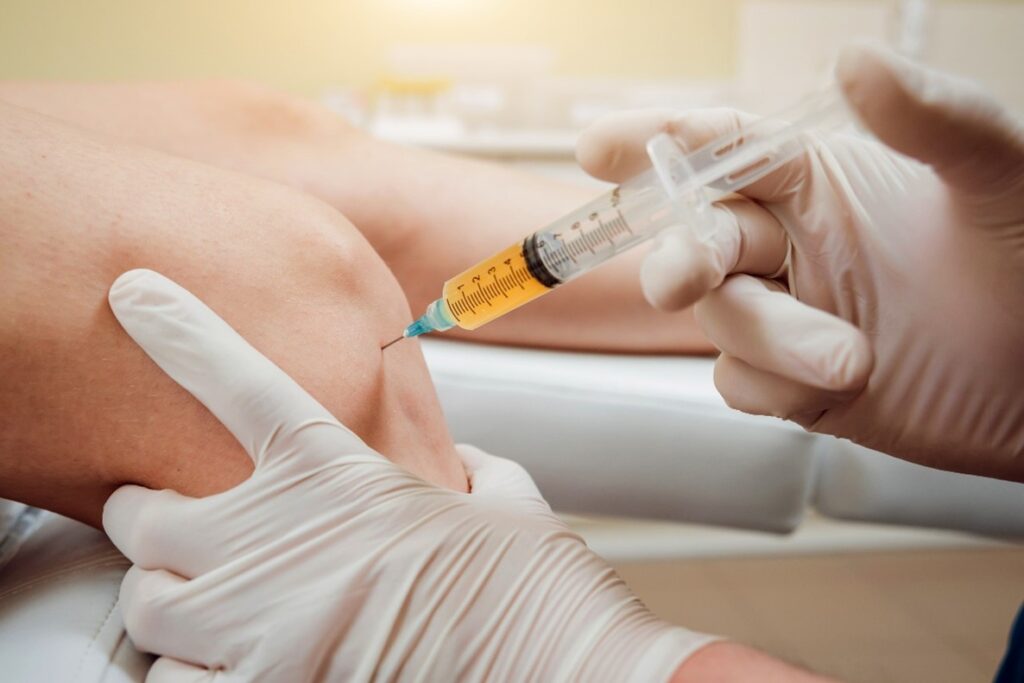Platelet-rich plasma (PRP) is an advanced treatment in regenerative medicine.
It utilizes concentrated platelets from a patient’s blood to enhance the healing process of injured tendons, ligaments, muscles, and joints.
By concentrating platelets up to 10 times their average amount in blood, PRP injections harness the healing powers of growth factors and proteins to accelerate the repair process.
This approach is popular among athletes who have used PRP for various musculoskeletal injuries.
How PRP Works
To produce PRP, blood is taken from the patient and centrifuged to separate the platelets from other blood elements.
These enriched platelets are then injected into the affected site, where they discharge growth factors and facilitate the healing of tissues.
PRP can be used as an isolated treatment or to aid healing post-surgery, such as integrating PRP into the repair of a torn tendon to improve outcomes.
Conditions Treated with PRP
PRP effectively treats chronic tendon injuries, particularly tennis elbow and Achilles tendinitis.
It is also gaining traction for treating knee osteoarthritis, showing promise in reducing pain and improving joint function.
Although initially thought to benefit surgical repairs, current research shows mixed results, particularly with rotator cuff and ACL surgeries, where benefits must be clarified.
Efficacy and Research
While PRP is celebrated for its potential to improve healing times and outcomes, its effectiveness varies depending on several factors, such as the specific area treated,
The patient’s overall health, and the acute or chronic nature of the injury.
Chronic conditions like tennis elbow have shown positive responses in multiple studies.
Still, more research is needed to standardize PRP preparations and fully understand its benefits across different conditions and patient profiles.
Moving Forward with PRP
Some promising studies support the growing interest in PRP, particularly for soft tissue injuries and mild to moderate knee osteoarthritis.
However, the medical community seeks more comprehensive clinical trials to establish robust guidelines for its use.
PRP could become a more widely accepted treatment across multiple disciplines as research evolves.
Are you considering PRP therapy? Consult with a specialist to discuss whether it is suitable for your condition.


